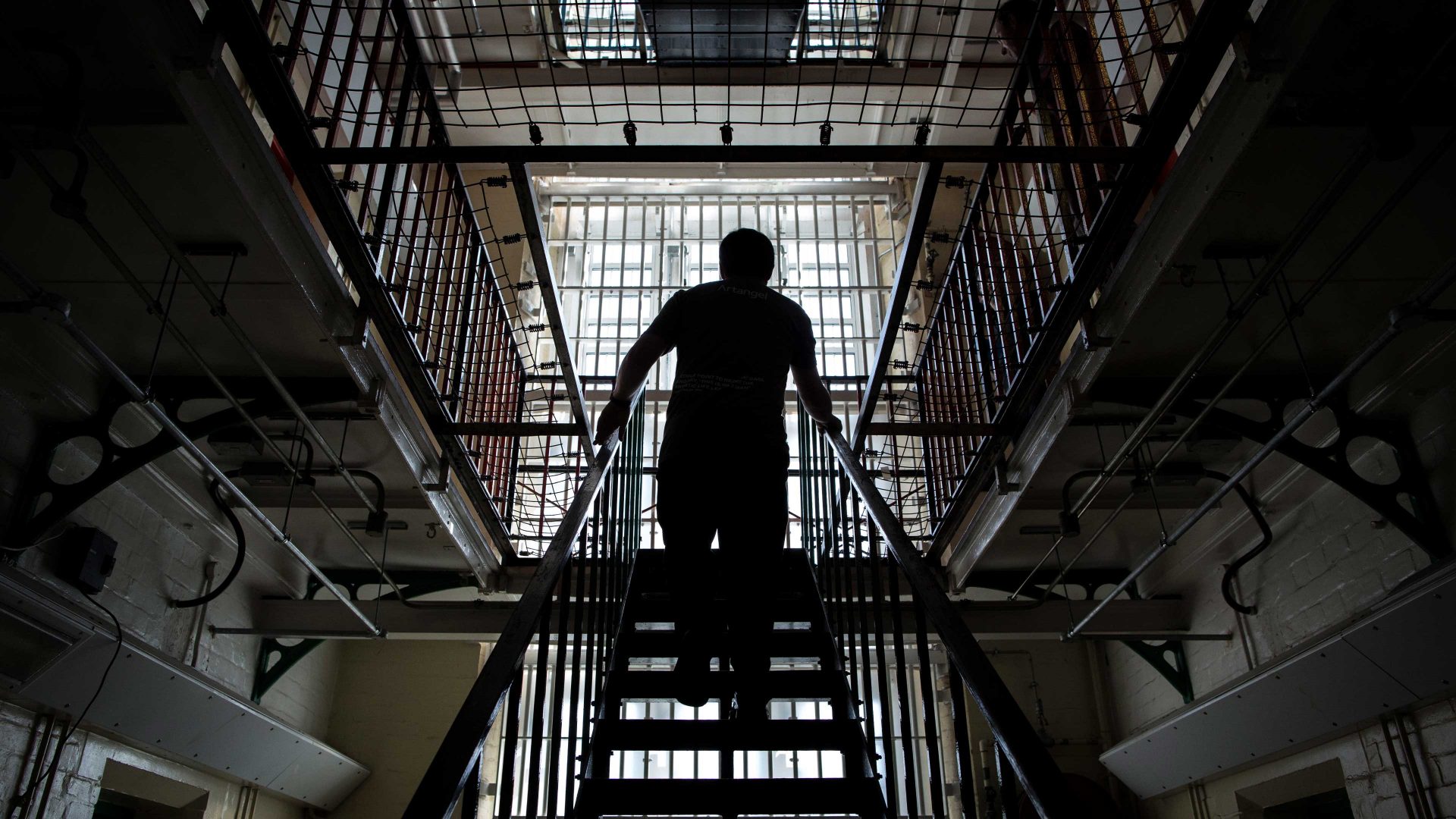Our jails are overcrowded and almost full. According to the Prison Governors’ Association, “The entire criminal justice system stands on the precipice of failure.”
There are around 88,000 people incarcerated today and there isn’t room for many more. Some already share cells designed for one person.
Labour’s proposed solution includes a promise to build more prisons. That’s one way of dealing with it. Another is to imprison fewer people. But there’s a more radical solution that some philosophers have proposed.
In the United States, where nearly two million people are incarcerated, the black activist feminist philosopher Angela Davis has over many years been a figurehead for the prison abolition movement. In the early 1970s, she spent 16 months in jail herself – accused of murder, kidnapping and conspiracy because a gun she owned had been used by someone else in a shootout at a California courtroom – before being acquitted. On hearing about her case, the Rolling Stones wrote the song Sweet Black Angel.
Davis later wrote the book Are Prisons Obsolete? Her answer in a nutshell was: Yes, prisons should be abolished altogether. She is fundamentally opposed to the mass incarceration in the US which is racist and used to marginalise black and minority opponents of the status quo.
According to Davis, who combines her own experience with influences from Herbert Marcuse and Theodor Adorno, the carceral system with all its inherent brutalities and dehumanising practices has been normalised and now seems an inevitable and acceptable part of society. But it need not be. Prisons have failed to achieve their aim of reducing crime and are a major part of the problem not the solution.
Dealing adequately with structural injustice in relation to race, gender, and class, eliminating poverty and inequality, giving better access to education, reducing unemployment – these are, she argues, better ways of approaching crime than the punitive and cruel system in play.
Recently the Harvard philosopher Tommie Shelby wrote The Idea of Prison Abolition, a thought-provoking book in which he explores the core philosophical arguments of the abolition movement and engages both sympathetically and critically with them. The word “abolition” makes a link to the abolition of slavery, which adds rhetorical force.
Davis has argued that there are important analogies between the two. But, as Shelby points out, the slavery comparison goes too far. He also questions whether prisons are necessarily inhumane, something of an article of faith for abolitionists.
An important element of the abolitionist approach is a desire to rid society of the retributive approach to punishment; something most reformers hope for too. That’s a noble aim.
Many feel we should enact vengeance on wrongdoers, that they have this coming to them as a matter of desert. They are opposed to anything resembling comfort in prisons.
This desire for retaliation is strong and terrifyingly widespread, but that doesn’t make it morally right. We can, as Shelby points out, question the “eye for an eye” approach to justice advocated by some religions and many tabloid newspapers.
In philosophy, Immanuel Kant stands out as an enthusiastic defender of retributivism. He thought proportionate legally sanctioned punishments were morally right and should be enacted regardless of the consequences, but he is an outlier. It’s more plausible to believe that we should get beyond this notion of justified payback because it builds on some of the worst aspects of psychology and results in unnecessary and counterproductive suffering.
As Shelby shows, the best arguments for prisons focus on the rehabilitation of prisoners, deterrence for potential criminals, and in cases of serious wrongdoing, incapacitating people who may do others harm.
The abolitionists think these largely unfulfilled aims are a smokescreen for more sinister social control. Shelby questions whether that is how things must be, and whether the facts support this view. While acknowledging that far too many people are imprisoned, he recognises that reformed prisons can be part of a just system. Imprisonment isn’t inherently immoral.
Shelby takes the utopian ideas of abolitionists as a stimulus to think about reforming prison. He gives very powerful arguments for reducing the number of people incarcerated and providing conditions that will minimise imprisonment and recidivism, many of which transfer to the situation today.
On this view, which has a lot going for it, building more prisons is a sign of failure, short-termism, and nothing to celebrate. We need to think far more deeply about prisons, their justification, and the functions they serve.



